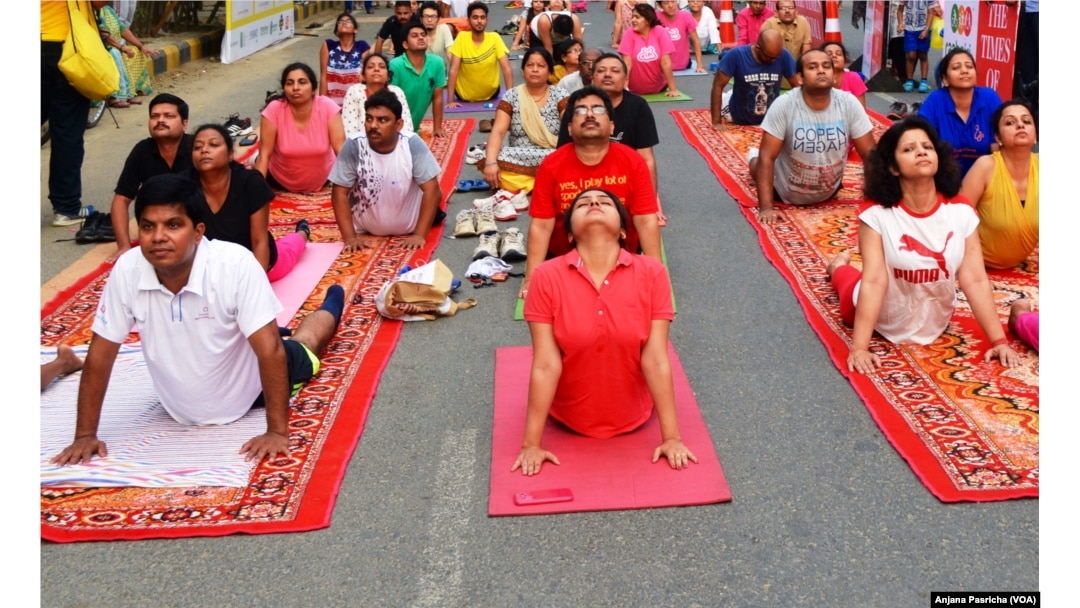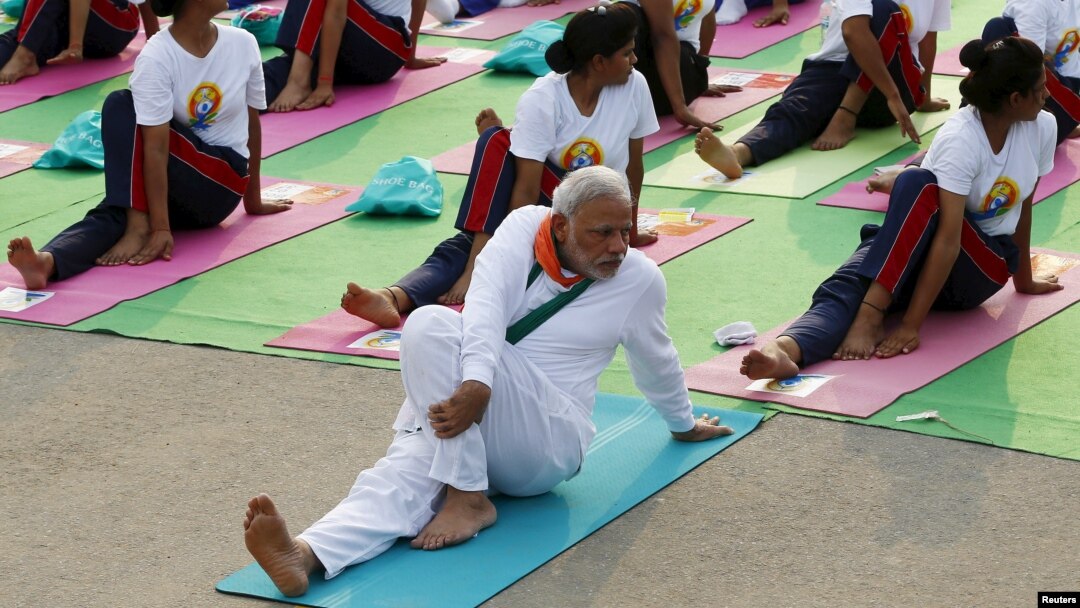Sprawled out in parks on colorful mats, millions of people across Indian towns and cites bent, stretched and did breathing exercises on the second International Yoga Day.
The yoga sessions were held at some unusual venues. Eleven hundred sailors took part in an early morning session on the deck of a warship docked off Mumbai, while soldiers did some deep breathing on the world’s highest battlefield at Siachin Glacier.
Before joining a group of about 30,000 in the north Indian city of Chandigarh for a mass session in which he performed yoga exercises effortlessly, Indian Prime Minister Narendra Modi pitched yoga as a secular practice that promotes health.
'Heath insurance with zero budget'
Dressed in a white T-shirt, he underlined that the ancient Indian practice has nothing to do with religion, saying that yoga is for both believers and non-believers.
“Yoga is a practice that gives you health insurance with zero budget. It does not distinguish between the rich and the poor, the literate and the illiterate,” he said.

A yoga class being held in Gurgaon, near New Delhi is one of hundreds of such sessions which are gaining in popularity in India.
Efforts to steer Yoga Day celebrations away from controversy have come as some critics have called the Hindu nationalist leader’s promotion of yoga an attempt to propagate Hindu culture.
World Yoga Day is the brainchild of Modi, a yoga enthusiast, who asked the United Nations to adopt the day to popularize the ancient Indian practice. Over 135 countries are taking part in celebrations this year.
Growing popularity
Yoga’s popularity has skyrocketed across India in recent years due to a growing belief that it promotes physical and mental well being. Hundreds of city schools have introduced yoga classes, early morning sessions are held in building basements,residential complexes and in public parks, while tens of thousands of affluent families get instructors at home to practice yoga. Many combine it with meditation calling it an urban stress buster.
Students practice yoga in the lawns of their school ahead of International Day of Yoga, in Chennai, India, June 19, 2015.
Seventy-year-old Rajni Khanna, a resident of New Delhi, turned to yoga about two years ago after suffering a series of health problems.
“I started up with two to three times a week, and now I am doing it almost on a daily basis. I have much more stamina, my body is more supple, generally a sense of well being is what I am experiencing. That helps me enormously in terms of my energy levels, my focus,” she says.
Yoga is close to the Indian Prime Minister’s heart, and he seldom misses the opportunity of mentioning it. During an address to the U.S. Congress earlier this month, he pointed out that yoga has 30 million practitioners in the United States.
“It is estimated that more Americans bend for yoga than to throw a curve ball. And, no Mr. Speaker, we have not yet claimed intellectual property right on Yoga,” he said in a light vein.


